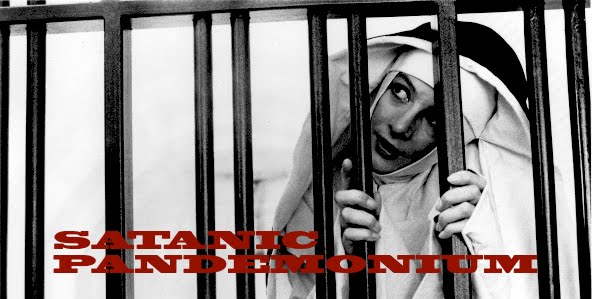
1989, Shohei Imamura
Starring: Yoshiko Tanaka, Kazuo Kitamura, Etsuko Ichihara, Shoichi Ozawa
Back in October 2007, the International House in Philadelphia was luckily part of "A Man Vanishes: The Legacy of Shohei Imamura," an eighteen film retrospective of the director's long and illustrious career that toured some of the major art-house theaters in the country. Ten of these films are not yet available on DVD, so the tour was probably the best opportunity to see the majority of Imamura's films for a good long while. The Northwest Film Forum was also kind enough to provide a booklet full of articles and stills, something classy enough to accompany a Criterion release.
Black Rain is an adaptation of Masuji Ibuse's novel about the attempt of an aunt and uncle to find a husband for their niece, Yasuko. Though she is lovely, graceful, and would obviously make a good wife, no one will go near her. During the aftermath of the bomb, Yasuko was caught out in a downpour of black rain, presumably a mixture of radioactive ash falling from the distant bomb blast. Though the local doctor has repeatedly given her a clean bill of health, the stigma refuses to disappear. Her aunt and uncle begin to succumb to radiation sickness and as they gradually fade away, they become desperate for Yasuko to carry on a traditional Japanese lifestyle and find a husband. After repeatedly being rejected, she falls deathly ill and her only comfort is the local idiot, a kind man desperately in love with her, whose war-time neurosis is triggered by the sound of engines.
On the surface, this is another film about the atomic bomb. Though there are brutal scenes of the family escaping the carnage in the beginning of Black Rain, for the most part this is a slow, but ultimately rewarding melodrama. What could have been a boring, forgettable film in the hands of another director becomes a tense, bleak exercise in sifting through the undercurrent of working class Japanese society. The film ultimately questions whether a traditional way of life is still valuable, though it refuses to provide an answer. Yasuko rejects both modernity and tradition; though she could easily find a husband by moving to a new village, she decides to stay with her aunt and uncle and remain unmarried.
There is also the collision between the rational and irrational. Though Yasuko's uncle, the paragon of tradition, is the trusted voice of reason who supports her and gives sound advice, there are also several mentally deranged characters who are able to see and speak hidden truths. Black Rain refuses to side with one voice over the other, which adds a layer of confusing unease about the shifting social order.
Finally, there are brilliant undercurrents to the film. There is a strange subplot involving Yasuko's parents. It is established that her mother is dead, though her aunt and grandmother are convinced in different ways that Yasuko's mother unavoidably lingers in their daily lives. Her father is introduced mostly to point out that Yasuko neither knows him or desires to live with him. This gives the film a Greek tragedy-like slant, because though she attempts to live a traditional life, she has already in some fundamental way polluted this by choosing an alternative family over her birth parents. This aura of uncleanliness seeps into the film and forces us to think about the final historical possible sub-current: HIV and AIDS.
The film comes recommended. There's an out-of-print Image disc available, though I can't vouch for its quality, and a newer disc from Animeigo. Criterion has a box set dedicated to Imamura's films and hopefully will eventually require the rights to this somber masterpiece.

No comments:
Post a Comment